How IoT is Transforming Logistics Businesses
Table Of Content
Published Date :
15 Dec 2023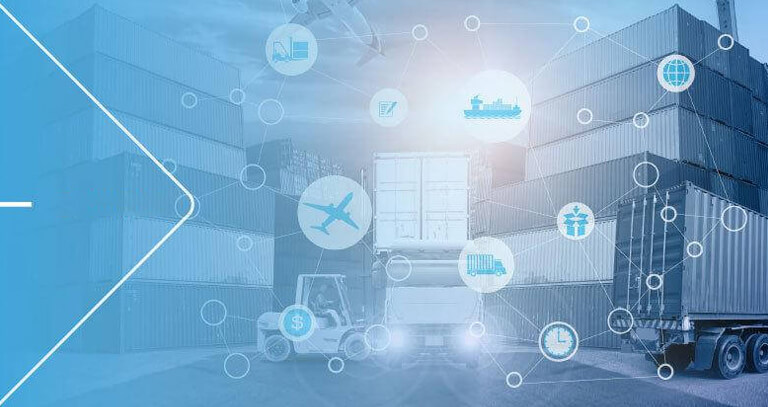
IoT has already taken the world by storm. With continued innovation, the use cases of IoT have expanded to diverse industries, and businesses are wondering how they can leverage IoT to optimize their daily operations. The logistics & transportation industry is no exception.
In today’s fast-paced and evolving world, the logistics industry has reached new heights of complexity. Enterprises nowadays struggle with a plethora of challenges, including cost optimization, streamlining supply chain operations, ensuring the safety and security of assets, and meeting the ever-changing demands of customers. This is where a game-changing solution emerges, i.e., the Internet of Things or IoT.
IoT in Logistics – An Overview
Currently, IoT implementation in logistics is witnessing enormous growth and is expecting more significant advancements in the near future. As per GlobeNewswire, the market for IoT in logistics was estimated to be up to $37.41 billion in 2021. Further, the expected value is forecasted to be around $93.85 billion by 2028. Sounds promising, right?
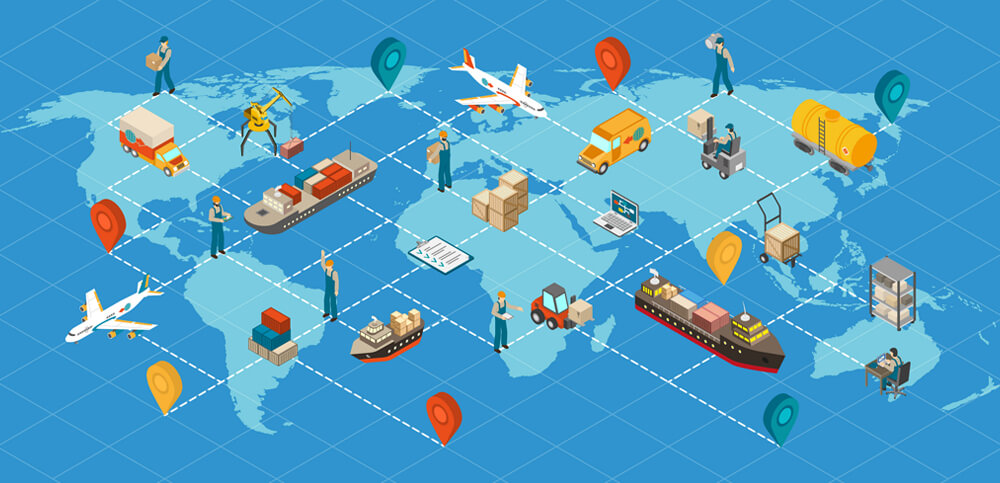
These numbers reflect IoT’s increasing adoption and recognition in the logistics industry. As businesses are realizing the potential of IoT in improving the operational workflow, it is going to have a significant impact on shaping the logistics landscape.
But, why logistics businesses are increasingly adopting IoT as an essential element of their strategy? Thanks to the fascinating growth potential it offers. IoT enables better visibility better control and visibility by allowing real-time tracking of assets, vehicles, and shipments throughout the supply chain. It also helps improve operational efficiency and cost-effectiveness by route optimization, inventory management, and predictive maintenance.
However, to reap the benefits of IoT implementation in logistics, it is crucial to seek experts’ guidance. At Ditstek Innovations, we offer custom logistics & transportation software development services that meet the unique needs of a business. Looking to tap into the potential of IoT for your logistics software? We can help. Just get in touch with our experts and they will assist you throughout the process.
A Few Ways IoT Technology Transforms the Logistics Industry
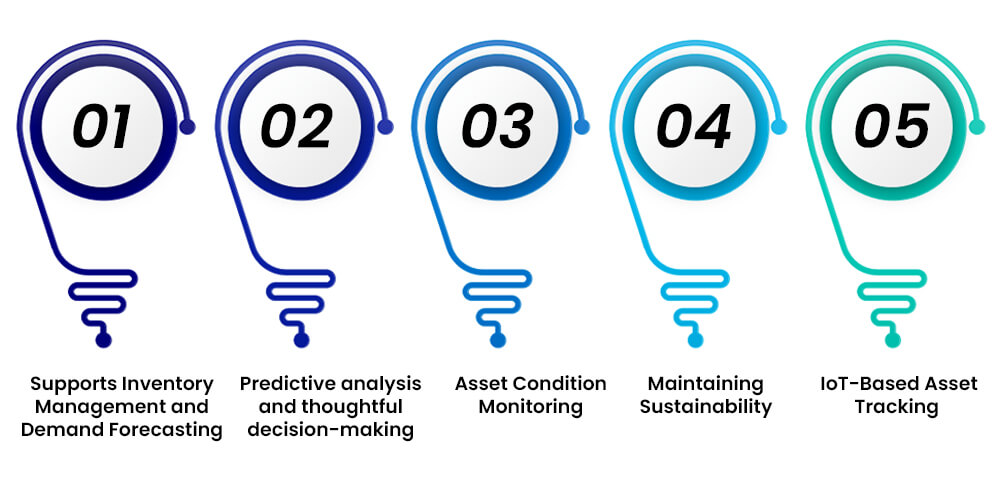
-
Supports Inventory Management and Demand Forecasting
IoT sensors provide valuable insights into consumer behavior, market trends, and environmental variables. This real-time data helps logistics enterprises formulate precise, data-driven forecasts, thereby facilitating the management of customer demands while mitigating the expenses associated with inventory imbalances, like overstocking or stockouts.
Also, IoT helps revolutionize inventory management. With IoT, every commodity or product in a warehouse can be equipped with an IoT device that tracks its most precise or accurate location in real-time. Not only does this support accurate asset tracking, but it also facilitates the implementation of smart inventory practices.
-
Predictive Analysis And Thoughtful Decision-Making
The data from IoT devices attached to these assets serves as a valuable resource for fleet managers in crafting strategic decisions. By analyzing these trends, fleet managers gain insights that help in their decision-making processes.
These trends prove to be important in optimizing routes and preparing for upcoming challenges. This data-centric methodology empowers logistics managers to make well-informed decisions, thereby creating a profound influence on the company's overall financial performance.
-
Asset Condition Monitoring
It is a crucial aspect of logistics operations, which ensures the reliability of valuable resources. In a nutshell, it involves continuous tracking and evaluation of the physical state of the products or assets. This approach helps prevent potential breakdowns, reduces maintenance expenses, and increases operational efficiency. In logistics where timeliness and precision are pivotal, asset condition monitoring is quite inevitable. This way, businesses can schedule maintenance or repairs before a breakdown actually occurs, preventing costly disruptions in the supply chain.
-
Maintaining Sustainability
Implementing IoT in logistics is a great step towards maintaining sustainability in the industry. By utilizing IoT technologies, organizations can make significant strides in reducing their environmental footprint and working more efficiently.
One way IoT fosters sustainability is through the optimization of route planning. The deployment of IoT devices on trailers minimizes free time, resulting in a substantial reduction in greenhouse gas emissions. Furthermore, IoT's significance extends to monitoring environmental conditions, guaranteeing that perishable goods and materials are stored in optimal conditions, thus controlling waste.
-
IoT-Based Asset Tracking
Asset visibility is tricky to maintain, especially when the assets are mostly away from the warehouse. Each asset, from a trailer to the cargo, counts in the logistics process. If there is no visibility of these assets, there is a risk of losing them. Losing these assets ultimately causes delays in the overall supply chain. However, with asset tracking, one can track assets in real-time; thus, fleet management staff can know the exact location of each of their assets every time.
Final Thoughts
In order to navigate the complexities of implementing IoT solutions in logistics, businesses look for reliable IT partners who guide them through adopting and integrating IoT technology and maximize the benefits of IoT adoption. At Ditstek Innovations, we are your go-to IoT experts who discover, design and deploy robust end-to-end IoT solutions for businesses of different domains. If you are looking to integrate IoT capabilities with your business workflow or enhance the functionality of software by deploying IoT, we can help you out.
Ready to get started with IoT to streamline your logistics operations? Book a consultation with our team now!

Dinesh Thakur
21+ years of IT software development experience in different domains like Business Automation, Healthcare, Retail, Workflow automation, Transportation and logistics, Compliance, Risk Mitigation, POS, etc. Hands-on experience in dealing with overseas clients and providing them with an apt solution to their business needs.
Recent Posts
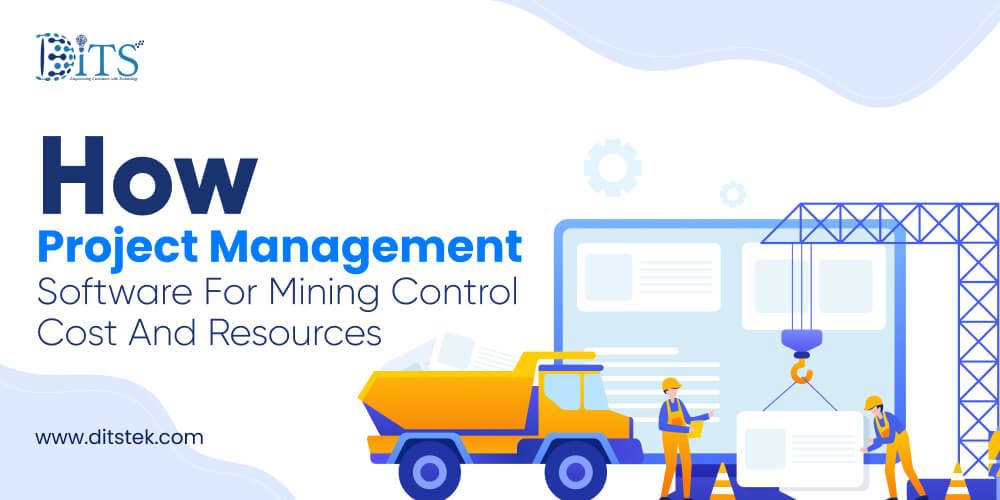
A strategic overview of how mining-focused project management software improves cost control, resource planning, visibility, and executive decision-making across complex, multi-site mining operations globally today.

From basic monitoring to enterprise-wide control, energy management system costs depend on your needs. Here’s what influences pricing.
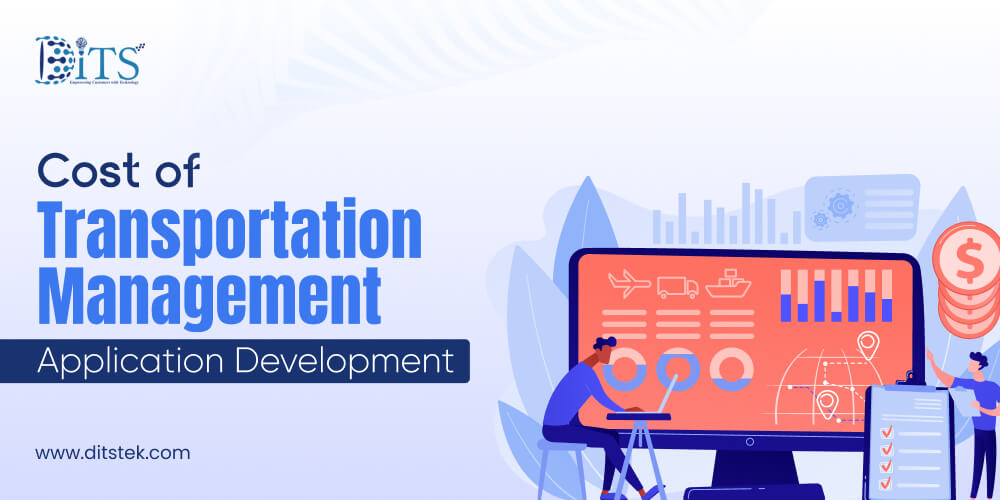
The cost to develop a Transportation Management System (TMS) varies widely, from basic apps at $4,000 - $40,000 for an MVP, to complex, enterprise-level platforms costing $100,000 - $800,000+.
 Doha Exhibition and Convention Center (DECC)
Doha Exhibition and Convention Center (DECC)